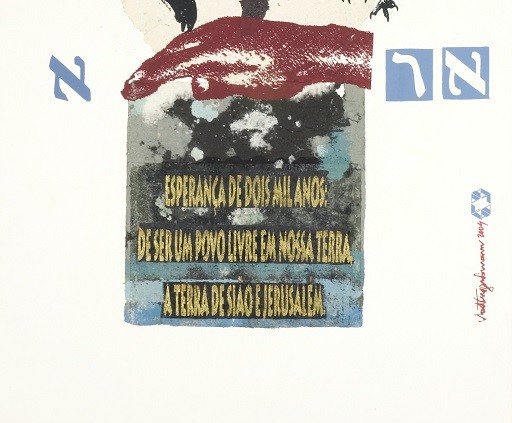The Sword and the Red Hat
the Dress of Jewish Physicians Throughout the Ottoman Empire
DOI:
https://doi.org/10.35699/1982-3053.2023.47629Keywords:
History of clothing, Jewish physicians, Ottoman EmpireAbstract
Studies on Jewish clothing in eastern and western communities show that over the generations Jewish garments were formed and shaped by the encounter between intra-cultural and external elements, namely the world of Jewish law and custom and the links formed in different spheres between the Jews and their surrounding societies, religions, and cultures. Moreover, though non-Jewish Christian and Muslim society marked and excluded the Jews by means of dress codes, the Jews themselves were also interested in segregating themselves from general society in order to preserve their unique religious character.
Downloads
References
AMAR, Zohar; LEV, Ephraim. Physicians: drugs and remediesin Jerusalem from the 10th-18thCenturies. Tel-Aviv: Eretz publication, 2000.
BAT YE'OR. TheDhimmi.NJ: Fairleigh Dickinson University Press, 1985.
BENAYAU, Meir.To the History of the batei Midrash in Jerusalem in the 17thCentury.Hebrew Union College Annual, XXI (The Hebrew Part), p. 1-28,1948.
BROWER, Abraham Jacob.New Material for the Knowledge of the Damascus affair.Jubilee bookof Samuel Krauss.Jerusalem: Reuven Mass, p. 260-279, 1937.
BRYAN, Michael.Bonnart, Henri. In:GRAVES, Robert Edmund (ed.).Bryan's Dictionary of Painters and Engravers (A–K). v.I (3rded.). London: George Bell & Sons,1886.
DEUTSCHER,Lisa;KAISER, Mirjam; WETZLER, Sixt. The sword: form and thought.New York: Boydell Press, 2019.
DRIANOV, Alter.From Early Times, Vol. II, Tel Aviv: Shoshani Press, 1935.
GARDET,Louis. La Cite Musulmane:Vie sociale et politique.Paris: Etudes musulmanes,1954.
ḤAGIZ, Moses. Ele ha-Mitzvot.Warsaw: Meir Yeḥiel Press, 1887.
HAREL,Yaron.The Status and Imageof the Piccioto Family as Perceived by Aleppo's French Colony(1784-1850).Michael, 14, p. 171-186,1997.
HEYD,Uriel.Moses Hamon, Chief Jewish Physician to Sultan Süleymān the Magnificent.Oriens, 16, p. 152-170, 1963.
JONES, Robert W. A cultural history of the medieval sword: power, piety and play. NewYork: Boydell Press, 2003. JUHASZ,Esther.The Jewish dress in encounter with the Surroundings. In: JUHASZ, Esther; BAR'AM-BEN-YOSSEF,No'am (Eds.).The Jewish Wardrobe: fromthe Israel Museum Collection.Jerusalem: Israel Museum,p. 15-30, 2014.
KAWTHARANI, Wajih. 2018. The OttomanTanzimatand the Constitution.AlMuntaqa, 1[1], p. 51-65, 2018.
MURPHY,Rhoads. 1992. Ottoman Medicine and Transculturalismfrom the Sixteenth through the Eighteenth Century.Bulletin of the History of Medicine, 66, p. 376–403.
NICOLAS DE NICOLAI. Les quatre premiers livres des navigation et peregrinations orientales.Lyon: Guillaume Rouillé, 1568.
PROMKIN, Arye Leib. The History of Jerusalem Sages.v. II. Jerusalem: Eliezer Rivlin edition, 1928.
RAY, John. Acollection of curious travels & voyagesintwo tomes. The firstcontaining Dr. Leonhart Rauwolff’s itinerary into the Eastern Countries, as Syria,Palestine, or the Holy Land, Armenia, Mesopotamia, Assyria, Chaldea & c. London: Fell. of the Royal Society,1963.
ROGER, Eugène.La Terre Sainte, ou, description topographique tres-particulier des saints lieux, & de la terre de promission.Paris:Antoine Bertier, 1646.
RUBENS, Alfred.A History of Jewish Costume. New York: Funk & Wagnalls, 1967.
SHEFER-MOSSENSOHN,Miri. Medical Treatment in the Ottoman Navy in the Early Modern Period.Journal of the Economic and Social History of the Orient, 50[4], p. 542-568, 2007.
YA’ARI,Abraham. Shluḥe Eretz Israel. Jerusalem: Mossad ha-Rav Kuk, 1951
Downloads
Published
How to Cite
Issue
Section
License
Copyright (c) 2023 Arquivo Maaravi: Revista Digital de Estudos Judaicos da UFMG

This work is licensed under a Creative Commons Attribution 4.0 International License.
Os direitos autorais pertencem exclusivamente aos autores. Os direitos de licenciamento utilizados pelo periódico é a licença Creative Commons Attribution 4.0 (CC BY 4.0): são permitidos o compartilhamento (cópia e distribuição do material em qualquer meio ou formato) e adaptação (remix, transformação e criação de material a partir do conteúdo assim licenciado para quaisquer fins, inclusive comerciais.






